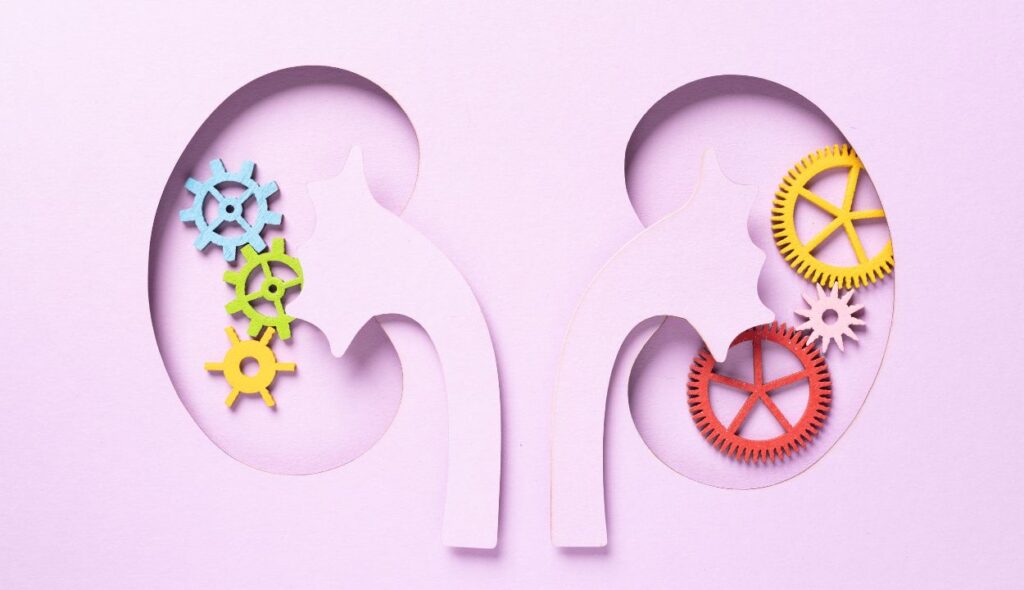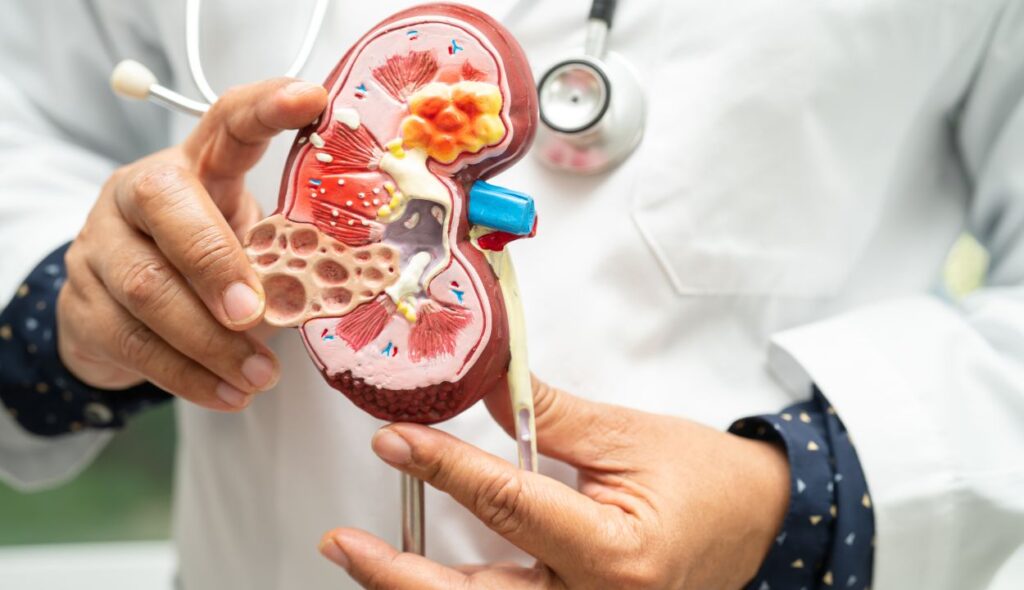
Nephrology is a branch of medicine that focuses on the diagnosis, treatment, and management of kidney diseases. It plays a crucial role in maintaining overall health, as the kidneys are essential for filtering waste products from the blood, regulating blood pressure, balancing electrolytes, and producing hormones. Nephrologists, the specialists in this field, work to prevent and treat conditions such as chronic kidney disease, kidney infections, and kidney stones. For those seeking specialized care, finding a reputable nephrology hospital in Nagpur is essential.

Nephrology Hospital in Nagpur: Services and Specialties
A nephrology hospital in Nagpur offers a wide range of services to diagnose and treat various kidney-related conditions. These hospitals are equipped with state-of-the-art facilities and technologies to provide comprehensive care. Some of the key services include:
1. Diagnosis and Treatment of Chronic Kidney Disease (CKD): CKD is a long-term condition where the kidneys do not function properly. Early diagnosis and treatment are crucial to managing the disease and preventing its progression. A nephrology hospital in Nagpur provides thorough evaluations, including blood tests, urine tests, and imaging studies to diagnose CKD accurately.
2. Dialysis Services: For patients with advanced kidney failure, dialysis is a life-saving treatment that removes waste products and excess fluids from the blood. A nephrology hospital in Nagpur typically offers both hemodialysis and peritoneal dialysis, allowing patients to choose the best option for their needs.
3. Kidney Transplantation: Kidney transplantation is often the best treatment option for patients with end-stage renal disease. A nephrology hospital in Nagpur has specialized teams to perform kidney transplants, providing patients with pre-transplant evaluations, surgery, and post-transplant care.
4. Management of Acute Kidney Injury (AKI): AKI is a sudden and severe reduction in kidney function. Prompt treatment is essential to prevent permanent damage. A nephrology hospital in Nagpur provides immediate care, including intravenous fluids, medications, and dialysis if necessary.
5. Treatment of Kidney Infections and Stones: Kidney infections and stones can cause significant discomfort and complications if not treated promptly. A nephrology hospital in Nagpur offers advanced diagnostic tools and treatments, such as antibiotics for infections and minimally invasive procedures for stone removal.

Nephrology Hospital in Nagpur: Advanced Diagnostic Tools
The ability to accurately diagnose kidney conditions is a cornerstone of nephrology care. A nephrology hospital in Nagpur is equipped with advanced diagnostic tools to ensure precise and timely diagnosis. These tools include:
1. Blood Tests: Blood tests are essential for evaluating kidney function. Tests such as serum creatinine, blood urea nitrogen (BUN), and glomerular filtration rate (GFR) provide critical information about how well the kidneys are working.
2. Urine Tests: Urinalysis and urine culture tests help detect abnormalities in the urine that indicate kidney problems. These tests can reveal the presence of protein, blood, or bacteria in the urine.
3. Imaging Studies: Imaging studies such as ultrasound, CT scans, and MRI are used to visualize the kidneys and identify structural abnormalities, blockages, or tumors.
4. Biopsy: In some cases, a kidney biopsy may be necessary to diagnose certain kidney diseases.
Nephrology Hospital in Nagpur: Multidisciplinary Care
Kidney diseases often require a multidisciplinary approach to treatment. A nephrology hospital in Nagpur typically has a team of specialists who work together to provide comprehensive care. This team may include:
1. Nephrologists: These are doctors who specialize in kidney care and lead the treatment team.
2. Urologists: Surgeons who specialize in the urinary tract and may perform surgeries related to kidney stones and other urological conditions.
3. Dietitians: Nutrition plays a crucial role in managing kidney disease. Dietitians help patients develop meal plans that support kidney health.
4. Nurses: Specialized nephrology nurses provide care and education to patients undergoing treatments such as dialysis.
5. Social Workers and Counselors: These professionals offer support to patients and their families, helping them cope with the emotional and practical challenges of kidney disease.
Nephrology Hospital in Nagpur: Patient Education and Suppor
Education is a key component of nephrology care. A nephrology hospital in Nagpur provides patients and their families with the information they need to understand their condition and make informed decisions about their care. Educational resources may include:
1. Workshops and Seminars: These events cover various topics related to kidney health, such as diet, medication management, and lifestyle changes.
2. Printed Materials: Brochures and booklets provide detailed information about kidney diseases, treatments, and preventive measures.
3. One-on-One Counseling: Individual counseling sessions allow patients to ask questions and receive personalized advice from healthcare professionals.

Nephrology Hospital in Nagpur: Preventive Care and Wellness Programs
Preventive care is essential to maintaining kidney health and preventing the onset of kidney diseases. A nephrology hospital in Nagpur offers various wellness programs to promote kidney health, including:
1. Health Screenings: Regular screenings for blood pressure, diabetes, and kidney function help detect potential issues early.
2. Nutritional Counseling: Dietitians provide guidance on healthy eating habits that support kidney function.
3. Exercise Programs: Physical activity is important for overall health. Exercise programs are tailored to the needs of kidney patients.
4. Smoking Cessation Programs: Smoking can worsen kidney disease. Programs to help patients quit smoking are available.
Advanced Care for Kidney Health
When it comes to kidney health, specialized care plays a pivotal role. Understanding the significance of kidneys and how to maintain their health is crucial. The kidneys are vital organs responsible for filtering waste from the blood, balancing electrolytes, and regulating blood pressure. They also play a role in red blood cell production and bone health. Given their importance, it’s essential to seek expert care when dealing with kidney-related issues.
Specialized Services
For individuals facing kidney problems, specialized services are key. These services encompass a range of treatments and diagnostic procedures tailored to address specific kidney conditions. Services include diagnostic tests like blood and urine tests to assess kidney function and identify any abnormalities. Imaging studies such as ultrasounds and CT scans may also be used to visualize the kidneys and detect any structural issues. These tests help nephrologists make accurate diagnoses and develop effective treatment plans.
Treatment Options
The treatment options for kidney-related issues are diverse. For chronic kidney disease (CKD), which is a long-term condition where the kidneys gradually lose function, management focuses on slowing the progression of the disease. This may involve lifestyle changes, medication, and close monitoring of kidney function. In cases of acute kidney injury (AKI), which is a sudden loss of kidney function, treatment aims to restore kidney function and prevent further damage. Dialysis is often used as a temporary measure until kidney function improves. For end-stage renal disease (ESRD), which is the final stage of CKD where the kidneys are no longer able to function on their own, kidney transplantation may be necessary.
Comprehensive Care
Kidney care is not just about treating the condition; it’s also about providing comprehensive care to improve the overall quality of life for patients. This includes managing symptoms, providing emotional support, and addressing any complications that may arise. Nephrology teams often work closely with other healthcare professionals, such as dietitians, social workers, and counselors, to provide holistic care
.
Patient Education and Support
Educating patients about their condition and how to manage it is a crucial aspect of kidney care. Patients need to understand the importance of following their treatment plan, including taking medication as prescribed, attending regular appointments, and making lifestyle changes. Patient support groups can also be beneficial, providing a forum for patients to share their experiences and learn from others facing similar challenges.
Preventive Measures
Preventing kidney disease is always preferable to treating it. Simple lifestyle changes can significantly reduce the risk of developing kidney problems. This includes maintaining a healthy diet, staying hydrated, exercising regularly, and avoiding tobacco and excessive alcohol consumption. Regular health check-ups are also important for early detection of any kidney issues.
The Role of Technology
Advancements in technology have revolutionized the field of nephrology. From improved diagnostic tools to more efficient treatment options, technology has made kidney care more effective and accessible. Telemedicine, for example, allows patients to consult with nephrologists remotely, reducing the need for travel and making healthcare more convenient.
Innovations in Kidney Care

Innovations in kidney care have significantly improved treatment options and patient outcomes. One such advancement is the development of wearable devices that monitor kidney function in real-time. These devices can track various markers of kidney health, such as blood pressure, electrolyte levels, and kidney function, allowing for early detection of any abnormalities. This early detection can help prevent the progression of kidney disease and improve patient outcomes.
Another innovation in kidney care is the use of telemedicine. Telemedicine allows patients to consult with nephrologists remotely, reducing the need for in-person visits and making healthcare more accessible. This is especially beneficial for patients in rural or underserved areas who may not have easy access to specialized care.
Advancements in dialysis technology have also improved the quality of life for patients with kidney failure. Portable and wearable dialysis devices allow patients to undergo dialysis at home or on the go, reducing the need for frequent visits to a dialysis center. This not only improves convenience for patients but also allows for more frequent or longer dialysis sessions, which can lead to better outcomes.
Research and Development
Research in the field of nephrology continues to uncover new insights into kidney health and disease. One area of research is the development of biomarkers that can predict the onset and progression of kidney disease. These biomarkers can help identify high-risk individuals and guide treatment decisions to prevent the development of kidney disease.
Another area of research is the development of new treatments for kidney disease. Researchers are exploring novel therapies, such as stem cell therapy and gene therapy, that have the potential to regenerate damaged kidney tissue and improve kidney function. Clinical trials are also underway to evaluate the effectiveness of new medications in treating various kidney conditions.
Collaborative Care Approach
A collaborative care approach is essential in managing kidney disease effectively. This approach involves a team of healthcare professionals working together to provide comprehensive care to patients. The team may include nephrologists, primary care physicians, nurses, dietitians, social workers, and other specialists, depending on the needs of the patient.
Patient-Centered Care
Patient-centered care is a fundamental principle in nephrology. This approach recognizes that each patient is unique and requires individualized care. It involves actively involving patients in their care decisions, listening to their concerns, and respecting their preferences and values. By taking a patient-centered approach, healthcare providers can ensure that patients receive the care that is best suited to their needs and preferences.

Supportive Therapies and Lifestyle Changes
Managing kidney health effectively involves more than just medical treatments. Supportive therapies and lifestyle changes are essential components of comprehensive kidney care. Nutrition plays a crucial role, and dietitians can help patients develop meal plans that support kidney function and overall health. A balanced diet that limits sodium, phosphorus, and potassium intake can help manage symptoms and slow disease progression.
Regular physical activity is also important for maintaining kidney health. Exercise helps control blood pressure, manage weight, and improve overall cardiovascular health, which in turn supports kidney function. Patients are encouraged to engage in regular physical activities suitable for their health condition.
Emotional and Psychological Support
Living with kidney disease can be challenging, both physically and emotionally. Emotional and psychological support is crucial for patients and their families. Counseling and support groups provide a platform for patients to share their experiences, learn from others, and receive emotional support. Social workers and counselors can assist with coping strategies, stress management, and navigating the healthcare system.
Conclusion
Finding the right nephrology hospital in Nagpur is crucial for individuals seeking specialized care for kidney diseases. These hospitals offer a wide range of services, from diagnosis and treatment to patient education and preventive care. With advanced diagnostic tools, multidisciplinary teams, and a focus on patient support, a nephrology hospital in Nagpur is equipped to provide comprehensive and compassionate care for those with kidney conditions. By understanding the services and specialties offered, patients and their families can make informed decisions about their health and well-being.


